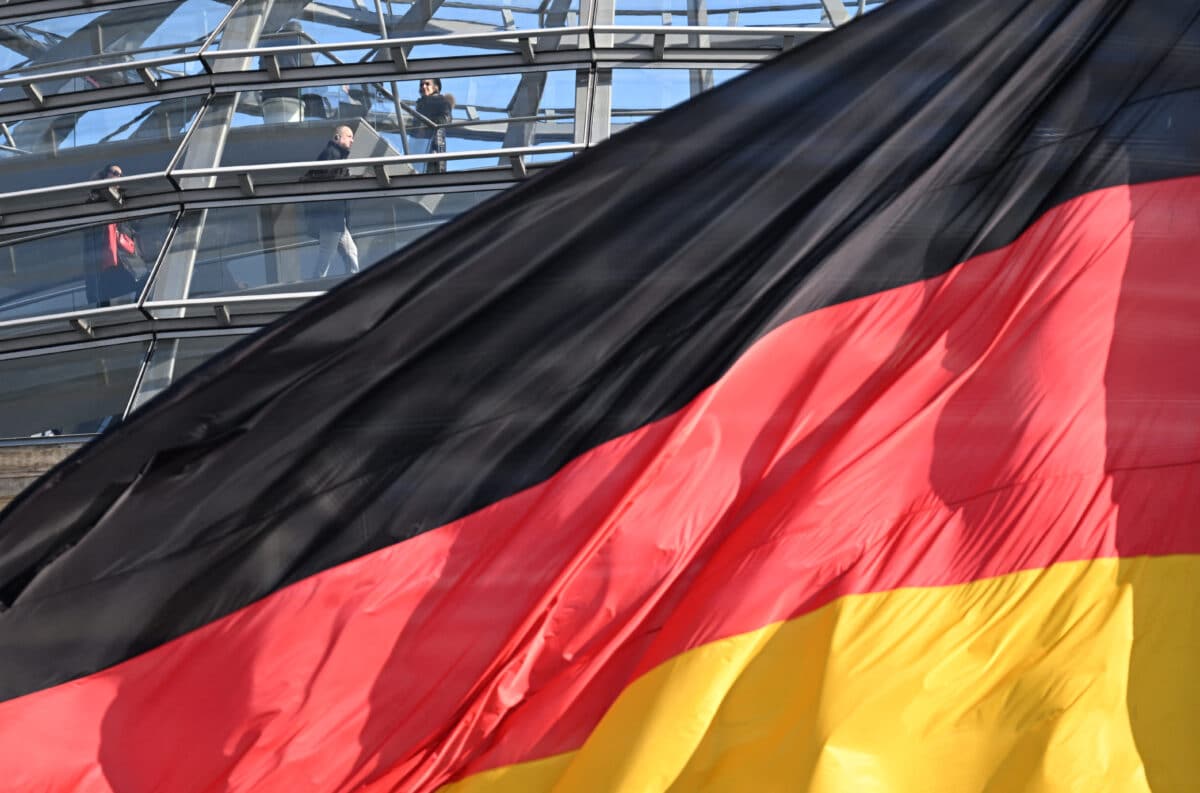German business leaders urge ‘new beginning’ after election

Visitors are seen walking in the cupola of the Reichstag building that houses the Bundestag (lower house of German parliament) as a German flag flutters in the wind on February 24, 2025 in Berlin, one day after general elections. German election winner Friedrich Merz faced the task of quickly building a new government that is eagerly awaited in Europe at a time of tectonic change in transatlantic relations. After winning the February 23, 2025 election, the conservative Merz said a united Europe must build up its defences as US President Donald Trump has cast doubt over the future strength of the NATO alliance. As the Ukraine war grinds on into a fourth year, he also pledged continued support for Kyiv even as Trump hopes to end the conflict directly with Russia, over the heads of Ukraine and Europe. (Photo by RALF HIRSCHBERGER / AFP)
Frankfurt, Germany — German business leaders called Monday for the swift formation of a new ruling coalition to usher in a “new beginning” for Europe’s crisis-wracked top economy after the conservatives’ election win.
The eurozone’s traditional powerhouse is facing an existential crisis amid a manufacturing slowdown and a host of deep-rooted problems, with the threat of US President Donald Trump’s tariffs adding to jitters.
After political paralysis under the last government, there are hopes that conservative election winner Friedrich Merz can quickly build a more stable coalition capable of driving much-needed reform.
READ: Late trains, old bridges, no signal: Germany’s infrastructure woes
“The German economy needs a new government capable of acting very quickly,” said Peter Leibinger, president of leading industry federation BDI.
“The longer uncertainty persists, the more companies and consumers hesitate to invest.”
He added that “a real new beginning is needed — we need far-reaching structural reforms for the economy.”
Economic policymaking had come to a near standstill after the collapse of Chancellor Olaf Scholz’s fractious, three-party coalition in November, which precipitated Sunday’s polls.
Even before that, constant feuding in the coalition prevented serious reforms to boost the economy, which has been mired in recession for the past two years.
Merz has vowed measures to get the economy moving again, from lowering business taxes to slashing red tape, and markets cheered his victory, with Frankfurt stocks up 0.8 percent at open.
He has also indicated he will prioritise boosting the economy over policies to tackle the climate crisis, which have increasingly faced criticism for burdening households with excessive costs.
More paralysis?
But he will first need to form a coalition government — a process that could take weeks or months, meaning policymaking will be on hold for a while longer.
Having ruled out working with the second-placed far-right AfD, Merz’s CDU/CSU alliance will have to reach out to their campaign trail foes — Scholz’s centre-left SPD, which crashed to third place with just 16 percent.
After a bitter election battle marked by rows over immigration and security, the talks could however prove tricky.
There is no time to waste, critics argue, pointing to challenges ranging from dilapidated infrastructure to a shortage of skilled workers, impenetrable bureaucracy, hefty taxes and high energy prices that dent manufacturers’ competitiveness.
The international climate has also weighed on the export-driven economy. As well as the threat of new duties from the United States, which the central bank has warned could dent growth by one percent, demand has also weakened in key export market China.
A steady stream of bad news has emerged from top companies in recent times, with hefty job cuts announced in sectors ranging from car manufacturing to steelmaking.
“A government vacuum is something we cannot afford,” Joerg Dittrich, president of the ZDH skilled crafts federation, which represents about one million businesses.
“The geopolitical situation and structural weaknesses in the country’s competitiveness force Germany to act immediately”.